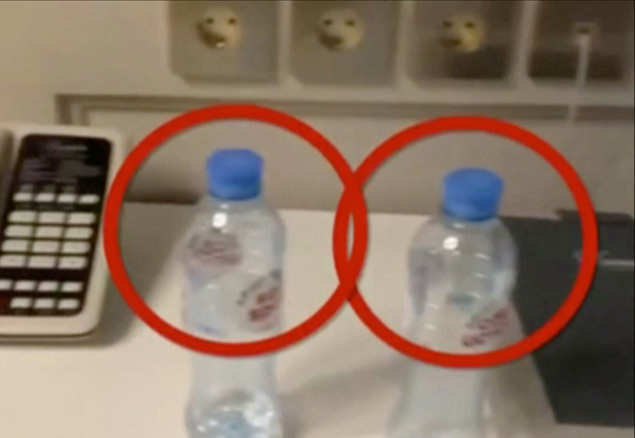This website uses cookies so that we can provide you with the best user experience possible. Cookie information is stored in your browser and performs functions such as recognising you when you return to our website and helping our team to understand which sections of the website you find most interesting and useful.
MOSCOW: The nerve agent used to poison Russian opposition leader Alexei Navalny was detected on an empty water bottle from his hotel room in the Siberian city of Tomsk, suggesting he was poisoned there and not at the airport as first thought, his team said on Thursday.
Navalny fell violently ill on a domestic flight in Russia last month and was subsequently airlifted to Berlin for treatment. Laboratories in Germany, France and Sweden have established he was poisoned by a Novichok nerve agent, though Russia denies this and says it has seen no evidence.
A video posted on Navalny's Instagram account showed members of his team searching the room he had just left in the Xander Hotel in Tomsk on August 20, an hour after they learned he had fallen sick in suspicious circumstances.
"It was decided to gather up everything that could even hypothetically be useful and hand it to the doctors in Germany. The fact that the case would not be investigated in Russia was quite obvious," the post said.
It showed his team bagging several empty bottles of "Holy Spring" mineral water, among other items, while wearing protective gloves.

"Two weeks later, a German laboratory found traces of Novichok precisely on the bottle of water from the Tomsk hotel room," the post said.
"And then more laboratories that took analyses from Alexei confirmed that that was what poisoned Navalny. Now we understand: it was done before he left his hotel room to go to the airport."
Vladimir Milov, a former deputy energy minister and an ally of Navalny, said his team had outplayed the FSB security police with their quick thinking: "They took the evidence from under their noses and shipped it out of the country."
Navalny is the most prominent political opponent of President Vladimir Putin, even though he has not been allowed to form his own party. His investigations of official corruption, published on YouTube and Instagram, have reached audiences of many millions across Russia.
Germany, France, Britain and other nations have demanded explanations from Russia over the case, which has prompted calls for new sanctions against Moscow.
The global chemical weapons agency, the OPCW, said on Thursday that Germany had asked for its assistance in investigating.
Russia has carried out pre-investigation checks, but said it needs to see more medical analysis before it can open a formal criminal investigation.
Watch Navalny team says Novichok was found on water bottle in hotel roomRead More



 Africana55 Radio
Africana55 Radio 
